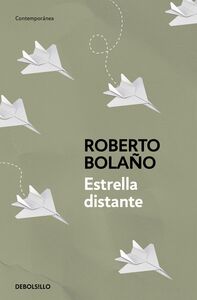You need to sign in or sign up before continuing.
Take a photo of a barcode or cover
challenging
dark
mysterious
medium-paced
Plot or Character Driven:
Character
Strong character development:
Complicated
Loveable characters:
No
Diverse cast of characters:
Complicated
Flaws of characters a main focus:
Complicated
informative
reflective
fast-paced
Plot or Character Driven:
Character
Strong character development:
Yes
Loveable characters:
Complicated
Diverse cast of characters:
Complicated
Flaws of characters a main focus:
No
"But I don't find it hard to believe that in the 1960's, in Chile, there were people who were hopelessly in love. It seems strange to me now. Like a film misplaced on a forgotten shelf in some enormous archive. But I don't doubt it for a moment."
As always i love this guy, his earlier stuff is grittier
challenging
informative
reflective
medium-paced
Plot or Character Driven:
A mix
Strong character development:
Complicated
Loveable characters:
Complicated
Diverse cast of characters:
Complicated
Flaws of characters a main focus:
Yes
adventurous
dark
informative
mysterious
medium-paced
Plot or Character Driven:
A mix
Strong character development:
No
Loveable characters:
Complicated
Diverse cast of characters:
Yes
Flaws of characters a main focus:
Yes
I'm a slow reader, and I couldn't turn away from the book. Read it one day and kept thinking about it for days. Bolaño wrote a still relevant thriller about the effects of fascism in society. Started reading another Bolaño book (El Espíritu de la Ciencia Ficción/The Spirit of Science Fiction) right after.
A mí dadme literatura cuyos protagonistas sean literatos y ya tenéis la mitad del trabajo hecho. Después de quedarme fascinada con “Amuleto”, decidí seguir zambulléndome en los mundos de Bolaño y, aunque elegí este segundo título un poco a ciegas, enseguida me di cuenta de que había sido un acierto. Al final, se trata de una reflexión profunda sobre la intrínseca relación entre estética, poética y política camuflada como novelita de misterio. Creo que lo que más me fascina de este libro es la capacidad de Bolaño para elegir su narrador, ya que este se muestra desconectado de la trama principal —la búsqueda de Carlos Wieder— durante más de la mitad del libro —su amigo y colega Bibiano es quien hace casi todo el trabajo de investigación y se lo transmite a nuestro narrador en forma de cartas que jamás obtienen respuesta—, y solo en los últimos capítulos el lector comprende que el mensaje implícito es la apatía política del narrador hacia su tierra natal, de la que ha tenido que exiliarse. En sueños, el narrador entiende que Wieder y él son náufragos del mismo barco y que, si bien Wieder había sido responsable activo del hundimiento, nuestro narrador tampoco había hecho nada por evitar el naufragio. Bibiano habría sido un narrador mucho más efusivo, dinámico, implicado… pero su narración habría perdido un matiz, una profundidad que nos golpea solo en las últimas páginas del libro, como una revelación.
i read all but chapter 8-10 in a few sittings during a come down from magic mushrooms that i took with a friend in my apartment yesterday in which i wrote a dozen lined post-it notes where it is unclear if i was writing words down in the english or chinese script
which is to say the last 3 chapters of this book was great and very much i feel a mutation instead of an expansion on what was touched upon in 'nazi literature in the americas', and everything before these chapters i was probably nodding along and took bolaños tangents on a soviet uncle or when the text suddenly gets erudite with names
which is to say the last 3 chapters of this book was great and very much i feel a mutation instead of an expansion on what was touched upon in 'nazi literature in the americas', and everything before these chapters i was probably nodding along and took bolaños tangents on a soviet uncle or when the text suddenly gets erudite with names
challenging
informative
mysterious
reflective
slow-paced






